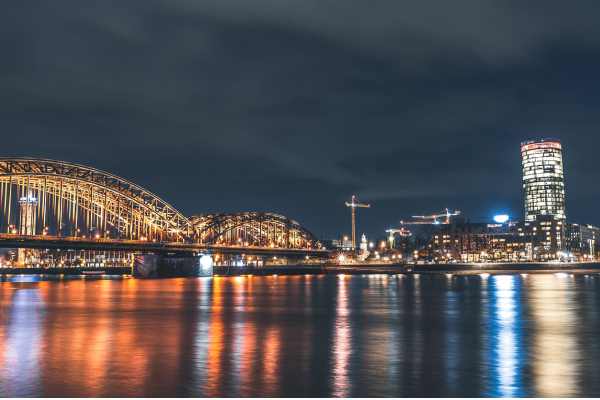
24 Oct 2024
Written by Jackie Smith, Industrial Technologies Specialist at International Trade Matters Ltd
As the UK and Germany navigate the dual challenges of decarbonising their steel industries and redefining trade relations in a post-Brexit world, both countries are turning to innovation in green technologies to remain competitive. While their methods differ, the push towards sustainability—whether through green hydrogen or Electric Arc Furnaces (EAF)—highlights a shared commitment to transforming their industrial landscapes.
In Germany, the steel giant Thyssenkrupp is at the centre of a national push to embrace green hydrogen technology. The country’s economy minister has been urging a quick resolution to the crisis, pressing the company to accelerate its transition from coal-based steel production to using hydrogen produced from renewable energy. This move is a critical step towards meeting Germany’s decarbonisation goals and keeping its steel industry globally competitive. However, the transition comes with significant challenges, including high costs and the need for massive infrastructure to support hydrogen production and distribution
Across the Channel, the UK is also working to decarbonise its steel industry, but its focus has shifted towards using EAF technology. The recent closure of Tata Steel’s Llanwern plant and the move to EAF production signals the UK’s commitment to recycling steel and reducing emissions. Electric Arc Furnaces are seen as a more immediate solution to lowering carbon emissions by using scrap steel rather than iron ore and coal. While green hydrogen is still on the horizon, EAFs are already playing a key role in decarbonising British steel production
Despite the different technologies, both Germany and the UK are aiming for the same outcome: a greener, more sustainable steel industry. This parallel transformation sets the stage for further cooperation, particularly in sharing technology and expertise in green steelmaking processes.
As these industrial shifts take place, both nations are also looking to strengthen trade ties in the wake of Brexit. Recent talks between UK Prime Minister Keir Starmer and German Chancellor Olaf Scholz focused on reducing barriers to trade, particularly in sectors like manufacturing and food. There is also a push to mutually recognise professional qualifications, which would ease the flow of talent and expertise between the two countries
The upcoming review of the UK-EU Trade and Cooperation Agreement in 2025-26 could be a pivotal moment for improving trade relations, particularly in industries where both countries are undergoing significant transformation, such as steel. A renewed focus on shared goals like decarbonisation could foster deeper collaboration between the UK and Germany, especially in green technology and innovation.
Scotland and Germany are also forging strong ties, particularly in the development of hydrogen economies. Scotland has been positioning itself as a leader in renewable energy, and the Scottish government is actively exploring partnerships with Germany to advance green hydrogen initiatives. With abundant wind resources, Scotland has the potential to produce green hydrogen at scale and export it to energy-hungry markets like Germany. Both nations see hydrogen as central to their decarbonisation efforts, and cooperation in this area could lead to significant economic and environmental benefits, enhancing the overall UK-Germany trade relationship
A Shared Future in Green Steel and Trade
With both the UK and Germany undergoing significant industrial changes, the focus on decarbonisation presents a unique opportunity for collaboration. Whether through Germany’s green hydrogen revolution or the UK’s push towards Electric Arc Furnaces, both countries are demonstrating that the future of steel can be green.
At the same time, post-Brexit trade talks offer a chance to rebuild and strengthen economic ties. By aligning their green ambitions and facilitating the exchange of technology and expertise, the UK and Germany are setting the stage for a collaborative future—one where trade and environmental sustainability go hand in hand.
ITM are the leading independent consultancy for International Trade offering expert advice and support to companies engaged, or interested in, overseas connections or business. With a raft of super Specialists, we offer expert advice and training on new markets, compliance and international marketing strategies, we offer bespoke packages designed to provide value and satisfaction.